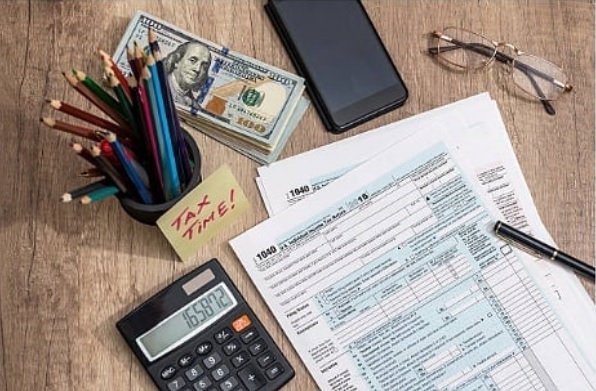Your taxes might be a rollercoaster you’ll have to tackle this year, thanks to COVID-19’s economic impact on 2020. If you lost a job, turned to gig work, or even got unemployment benefits, you may have to navigate landmines you’re not used to.
Not to mention, you might have to request your stimulus check on your taxes if you didn’t get one.

Unemployment
Unemployment is one of the biggest changes many taxpayers will have to deal with on their taxes, likely for the first time.
Many local and State Department of Job and Family Services has already begun sending out 1099-G forms to anyone who applied for and/or received unemployment benefits in 2020. The form shows a record of how much money you got, which needs to be reported to the IRS.
Anyone who didn’t have withholdings taken out of their unemployment, may actually owe, as unemployment benefits are taxable.
Home Office Deduction
With so many people working from home, the idea of a home office deduction is gaining buzz, but not everyone who worked from home qualifies. “When they changed the law a couple of years ago, they took away that deduction for employees. That’s right; the deduction is only for business owners.
According to the IRS, employees aren’t eligible and, “taxpayers must meet specific requirements to claim home expenses as a deduction. Even then, the deductible amount of these types of expenses may be limited.”
Stimulus Checks
Your stimulus check will also play a part in your taxes in 2021. Economic Impact Payments (the official name for stimulus checks) are essentially tax credits. Your first payment should have been followed by a letter with form 1044 from the official government which, similarly to the 1099-G, explains the benefit and how much you received.
The IRS has stated those of us who did not get a second stimulus payment but should be eligible may have to request it on their taxes, by claiming the Recovery Rebate Credit. This is a win-win situation since the EIP’s are calculated based on both 2019 and 2020 income.
“Everybody’s going to have to look at those economic impact payments they received. “That calculation is going to calculate whether they got enough or not, on this year’s income.”
Take into account that if your 2019 income was higher, you may have only reached a certain bracket for the stimulus checks. Taking into account a lowered 2020 income, your tax refund may include the portion of the stimulus you didn’t already receive.
Delayed Timeline
The IRS has already announced filing season will start on February 12th, later than usual, which “allows the IRS time to do additional programming and testing of IRS systems following the December 27 tax law changes that provided a second round of Economic Impact Payments and other benefits.”
The IRS adds that “this programming work is critical to ensuring IRS systems run smoothly. If filing season were opened without the correct programming in place, then there could be a delay in issuing refunds to taxpayers. These changes ensure that eligible people will receive any remaining stimulus money as a Recovery Rebate Credit when they file their 2020 tax return.”

